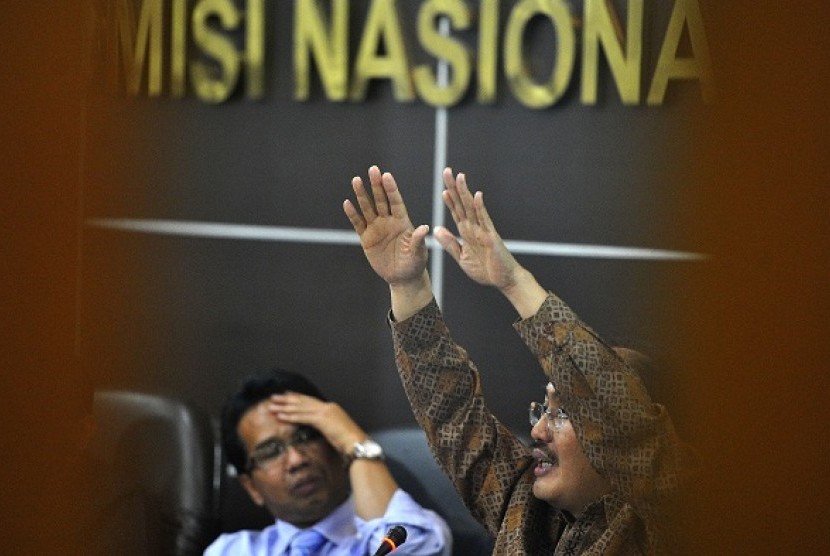REPUBLIKA.CO.ID, JAKARTA – Indonesia respected religious tolerance as it was cited in the valid constitution and laws, Chairman of National Commission on Human Rights (Komnas HAM), Ifdhal Kasim. While Chairman of the Communion of Churches in Indonesia (PGI), Andreas A Yewangoe, said that tolerance was inherent in Indonesian culture since a long time ago, despite some extreme elements emerged.
Kasim uttered his disagreement with the issue raised by Working Group in the 13th meeting of Universal Periodic Review of the Council of UN’s human rights. The delegations from Austria, Norway, Netherlands, Germany, India, and Italy said Indonesia needed efforts to address religious intolerance in the country. US also recommended Indonesia to protect the rights of religious minorities.
“The constitution regulates and protects all religions,” Kasim said on Sunday.
The violence cases over Ahmadiyah, Syiah, and the case of Yasmin Indonesian Christian Church in Bogor were existed, he admitted, but similar cases also happened in all countries in the world, including in the West.
Meanwhile, Chairman of PGI, Andreas A Yewangoe, said intolerance did not only emerge in Indonesia. “Indonesia has authentic tolerance from a long time ago. In its development, radical elements emerge,” Yewangoe said.
Indonesia becomes the attention as the radical elements are not managed well. “We cannot close our eyes to the existence of extreme elements,” he added.
The Vice Secretary General of Indonesian Council of Ulema (MUI), Tengku Zulkarnaen, said the accusation of intolerance emerged from the groups vilifying Indonesia in abroad. He also questioned the facts of the intolerance.
Zulkarnaen cited religious tolerance in Bali, as Muslim in Bali did not turn up the volume of microfone in the Masjid during Nyepi or seclusion day celebrated by Hinduism. MUI urges the Indonesian State Intelligence Agency to investigate the groups vilifying Indonesia.
The Directorate of Islamic Affairs and Development in the Ministry of Religious Affairs, A Jauhari, said the development of masjid in Indonesia was lower compared to other houses of worship. It proves that the rights of other religions to build their houses of worship are still protected.


